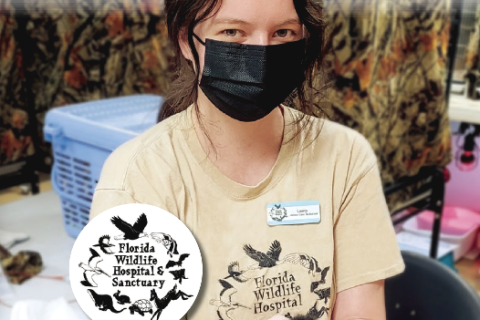I recently lost my dear Aunt Linda to a quick but valiant battle with pancreatic cancer. However, I am comforted by our final time spent together last Thanksgiving weekend. During the family visit, she entertained all present with her guitar playing, singing and dancing and I am blessed to have much of this most precious memory recorded on my cellphone. After her passing, I replayed experiences and impressions of this sweet woman in my mind, and though she possessed so many wonderful qualities, the one that kept rising above all else was her consistent ability to be her authentic self.
 Now in an era of “soundbite personalities” addicted to creating and sharing their carefully edited lives on social media, Aunt Linda eschewed most current trends of society and presented her simple, straightforward style in appearance and communication. And though I am sure she had her own human moments of self-doubt, she navigated this world for almost three-quarters of a century being consistent inside and out.
Now in an era of “soundbite personalities” addicted to creating and sharing their carefully edited lives on social media, Aunt Linda eschewed most current trends of society and presented her simple, straightforward style in appearance and communication. And though I am sure she had her own human moments of self-doubt, she navigated this world for almost three-quarters of a century being consistent inside and out.
To my knowledge, she didn’t have a website or Facebook page or Instagram account yet she sang professionally for over 50 years. And though she was barely four years old when she lost her father (my grandfather Ray Oliver) she was a living legacy to his spirit of singing and dancing with such passion and commitment and she was glad to share those gifts that God had given to her.
In recent years, a decorating trend has emerged framing inspirational phrases and hanging them like art. One classic is “Sing like nobody is listening; dance like no one is watching and love like you will never get hurt”. For some reason, this adage has never been a personal favorite. In our modern world from our earliest social interactions we are conditioned to behave, and live, by conforming to societal norms. If we don’t, we are quickly labeled as “weird, kooky, backward…” the list is endless. So in a desperate attempt to remain a part of the tribe, we learn to project a “socially acceptable” form of ourselves and keep the rest safely under wraps so we won’t get ridiculed and rejected.
Unfortunately, many of us end up creating a persona that can feel like a lie and then we can feel like we are not living an “authentic” life. The definition of the word authentic is “ not false or copied, genuine, real”. How many of us can say we currently live an “authentic life” that is true to ourselves and the God who made us? I am not talking about career discontent such as “I am an accountant but my dream is to be a rock star”. Instead, this is an acceptance of one’s true nature and being comfortable enough so as not to feel compelled to hide or change in order to be accepted.
Do you secretly long to paint or take a dance class or bake to share and make people happy? When I was in college, there was a beatnik hangout called “The Rudyard Kipling” and one night a week they had open mic poetry reading for anybody brave enough or drunk enough to share their innermost thoughts with a room full of strangers. I stopped by one evening after class and each time without fail, the person would haltingly approach the tiny, poorly lit stage with a lone mic stand like they were stepping in front of a firing squad. Then with hands shaking and lips quivering each person would begin to read in a low-pitched monotone. However, with each word uttered the aspiring poet gained confidence and command so by the end with the crowd enthusiastically clapping each and every person would exit the stage glowing with adulation and validation of their true self.
Our current society has created countless slaves committed to “socially acceptable” lives which require an inordinate amount of time and money to maintain. From our suburban houses and decor to our clothing and even the coffee we drink. How many selfies have been posted on social media platforms with the person holding the ubiquitous white paper cup with the “right” logo? If we long for an authentic life we must ask ourselves how much of our lives feel “real” and what keeps us from being our genuine selves?
Many times, courage breeds contentment, and to step out and share our authentic selves seems frightening. However, I have lived long enough and been blessed to know a few people like my Aunt Linda who was comfortable enough in their own skin to share their time and talents with so many and inspire gratitude and joy instead of mockery and rejection.
As I bid a bittersweet “good-bye” to my Aunt Linda, I will honor her memory by committing myself to living a more authentic life and I will try to dance even if everybody is watching, sing even if the whole world is listening, and love knowing it will be worth the pain.

Til Nextime
Be Kind & True to Yourself,
Angela Bozorth






